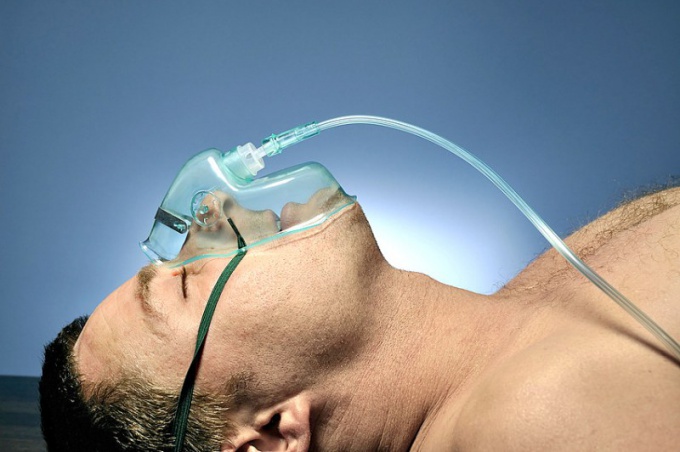You will need
- – complete preoperative examination of the body;
- – consultation of the anesthesiologist;
- – preparing for the anesthesia
Instruction
1
Preliminary preparation for surgery and procedure anesthesia is the full survey of the condition of the body. It is a set of laboratory tests and instrumental investigations. Concomitant diseases must, if not cured, then transfer to the compensation stage.
2
Before consultation with the anaesthetist, prepare the conversation with him. Remember, if you had an operation under anaesthetic before and how it moved; whether there is any allergies; any medications you regularly take. This information is necessary for the anesthesiologist to choose and the dosages that are selected purely individual.
3
The day before surgery to women with a manicure, remove the nail Polish. The individuals need to remove makeup and not to use cosmetics, perfume agents.
4
Before surgery last time is not late in the evening, preferably solid rather than a liquid food. At night you need to cleanse the bowel, taking a laxative or having an enema. Effective laxative anal candles "Bisacodyl".
5
On the day of surgery you cannot eat or drink anything, you have to suffer. But, if you really really thirsty, not less than four hours before departure in the operating unit, you can have a drink of water. A quarter Cup at the most.
6
Before surgery typically, the patient takes off all of her clothes, he is given a sterile Shoe covers and gown. First you need to remove watches, necklaces and other jewelry. Mobile phone off and give to loved ones. If you wear dentures, do not forget to remove them.
7
Children to prepare for the surgery, of course, more difficult psychologically. It is not necessary to tell about the anesthesia to the baby. And a teenager should be to explain why fear is not necessary.
8
The most difficult constraints in drink and food. They practically are the same as for adults. Babies can be breast-feed for four hours before surgery, iskusstvennogo – six hours. Water can be given to all children for four hours before anesthesia.
9
The small intestine of the patient should also be cleaned out, especially if you have surgery on it. In three days the child should not be given meats and foods that contain a lot of fiber.
10
With the consent of the surgeon it is desirable that mommy was there with the baby until he falls asleep from the anesthesia. If after the surgery he was transported not in intensive care and the ward, should be on duty around him, especially the first day after surgery.
Note
Anesthesia should not cause severe side effects (vomiting, the "failures" of memory, etc.). Sometimes there are mild disorders of attention, thought, but they soon pass. Ordinary phenomena are considered to be slight nausea, dry throat, dizziness, General weakness.
For two or three days before surgery should not take alcohol, a controlled substance.
Fat people and smokers tolerate anesthesia worse, so it is also recommended to lose weight and at least temporarily not to smoke.
To interrupt taking the medications prescribed for continuous use (e.g., diabetics, high blood pressure) is not required, neither before nor after anesthesia.
For two or three days before surgery should not take alcohol, a controlled substance.
Fat people and smokers tolerate anesthesia worse, so it is also recommended to lose weight and at least temporarily not to smoke.
To interrupt taking the medications prescribed for continuous use (e.g., diabetics, high blood pressure) is not required, neither before nor after anesthesia.
Useful advice
Anesthesia is General and local. General – anesthesia, i.e., anesthesia with loss of consciousness. So, to say "under General anesthesia" is incorrect, as "local anesthesia" does not happen. The second type of local anesthesia i.e. local, partial, in which consciousness is fully preserved. If possible, operations under local anesthesia, it is better to choose it instead of anesthesia.
If before you had surgery and standard dose on you didn't work, be sure to tell your anesthesiologist!
Usually administered for anesthesia in two ways: intravenous and inhaled through a respiratory mask. Inhalation anesthesia is preferable, as it provides the sleep a smaller dose of the drug. The stronger dosage of anesthesia, the more likely complications. But don't believe the stories that the anesthesia "takes five years of your life" or "undermines the heart."
If before you had surgery and standard dose on you didn't work, be sure to tell your anesthesiologist!
Usually administered for anesthesia in two ways: intravenous and inhaled through a respiratory mask. Inhalation anesthesia is preferable, as it provides the sleep a smaller dose of the drug. The stronger dosage of anesthesia, the more likely complications. But don't believe the stories that the anesthesia "takes five years of your life" or "undermines the heart."









